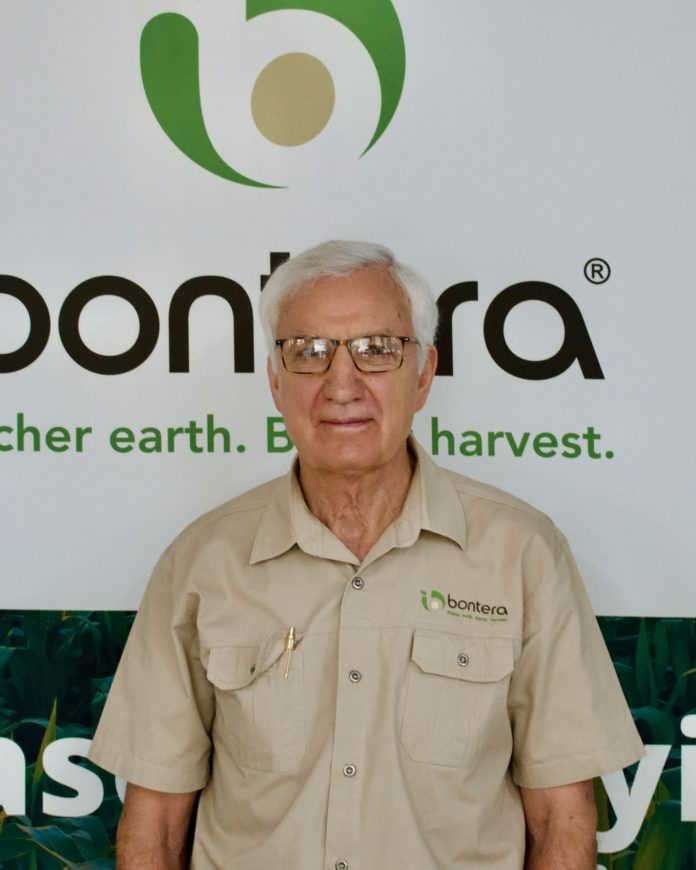Why do diverse farming models exist, and why do they not uniformly succeed across all regions? This inquiry delves into the fundamental principles guiding agricultural practices. Our approach to farming is often influenced by accumulated knowledge and the prevailing attitudes within our communities. Yet, unquestioningly adhering to conventional wisdom may obscure alternative, potentially more effective methods. In agriculture, embracing innovative perspectives becomes paramount for sustainable success.
Gert Coetzer (Pr.Sci.Nat), Head Agronomist at Bontera South Africa shares his thoughts on this concept.
Conventional agriculture
“The system of agriculture that has become known as ‘conventional farming’ has only been for about 70 years. The heavy use of highly toxic chemicals and synthetic fertilisers is a post-World War Two phenomenon.
“On the surface, the results of what we call the conventional farming system seem good. We are producing way more crops now than ever imagined 100 years ago. But what about the long-term effects — the hard, dead soil, the poisoned groundwater, the increasing pest problems? Or the fact that most commercially grown fruits and vegetables must be rushed to market before they spoil. What happened to quality produce? Are we sure that there isn’t a better way?
“The basic philosophy of our modern agricultural practices is exploiting natural resources for economic gain. We need to control nature so that we can produce more. If other plants interfere, we need to kill them. If we see an insect in our field, we must eliminate it.
“We’ve also learnt that plants only really ‘need’ a few simple ions to grow . We’ve developed highly toxic chemicals to rid our fields of unwanted plants and insects, and we’ve developed ways to synthesise these essential ions to produce our own plant food and make them grow bigger and faster.
Another way
“But there is another way, another outlook on life, another agriculture system. A system that is by no means less productive, simply more humble and respectful. It respects nature and realises that man doesn’t know it all. Plants and animals grow by natural laws and grow best when natural laws are followed. Life operates in natural cycles. One thing affects another; just as the antelope eats the grass and we eat the antelope, we are all part of the circle of life.
Today, we have the tools and understanding that allow us to farm in an environmentally friendly way, get the yields and be the most profitable.
“This system of agriculture relies on working with nature, not against it. When we give the soil the right materials, an amazing array of soil organisms do what they’re supposed to, and we receive an abundance of nutritious, high-quality food. Other natural organisms and mechanisms protect against pests and diseases — automatically. All that we have to do is encourage them and then get out of their way.
“We call this system ‘ biological farming’ as it emphasises one of its key aspects, life in the soil. Biological farming works with the natural laws and systems; our job is to try and help everything operate more effectively. A healthy, balanced soil is the foundation necessary for healthy plants. We are also not against using modern technology and new methods, but we only advocate for those that do not interfere with natural systems.
“The results of using biological methods are amazing: soil structure improves, crop yields are high, and quality improves. Biological farming embodies principles crucial for the well-being of both the environment and farmers. By prioritising techniques aimed at reducing water consumption, improving soil fertility, and enhancing food quality, biological farming fosters healthier ecosystems and cultivates higher crop yields. This increase in productivity translates to greater income and profit for farmers, ensuring economic sustainability. Moreover, biological farming serves as a cornerstone for future-proofing the food chain, safeguarding it for future generations. Central to this approach is the commitment to enriching lives while preserving land health, epitomised by the innovative optimisation of microbial communities within plants—a groundbreaking method poised to revolutionise productivity and propel agricultural sustainability into the future. Weeds, diseases and pests almost disappear. Farming becomes fun again!”












